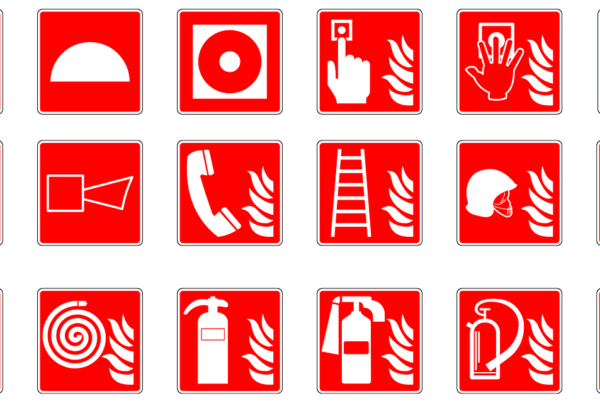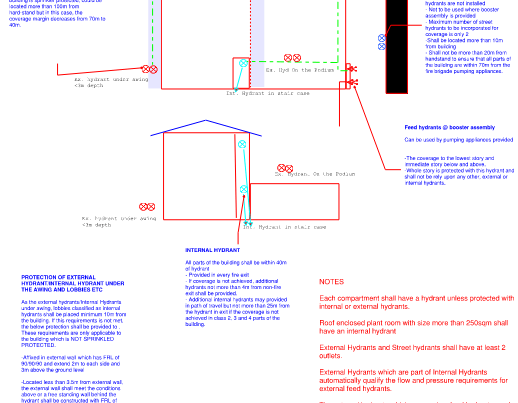Fire Resistant Structures are a critical aspect of building design and construction. In Australia, compliance with the National Construction Code (NCC) is essential to ensure that structures meet stringent safety standards. Among the various volumes and sections of the NCC, Volume 1, Section C focuses specifically on fire safety requirements. In this article, we delve into the complexities of NCC compliance, particularly in Volume 1, Section C, and explore how Cybil Consults assists in navigating these regulations effectively.
Introduction to NCC Compliance:Fire Safety Structures
The National Construction Code (NCC) is a set of regulations developed to ensure the safety, health, and welfare of building occupants in the United States. Compliance with the NCC is mandatory for all construction projects across the country. It encompasses various aspects of building design and construction, with specific sections dedicated to Fire Safety Structures, structural integrity, and accessibility, among others.
Understanding Volume 1, Section C for Fire Safety Structures
Overview of NCC Volume 1
NCC Volume 1 primarily addresses building requirements for various occupancy types, including residential, commercial, and industrial structures. It outlines provisions for structural design, Fire Resistant Structures, energy efficiency, and sustainability. Volume 1 serves as a fundamental reference for architects, engineers, builders, and regulatory authorities involved in the construction industry.
Importance of Section C
Section C of Volume 1 specifically focuses on Fire Resistant Structures requirements for buildings. It covers aspects such as fire resistance, means of egress, fire detection and alarm systems, and fire suppression systems. Compliance with Section C is crucial to mitigating the risks associated with fire incidents and ensuring the safety of building occupants.
The Role of Cybil Consults
Cybil Consults is a leading consultancy firm specializing in building compliance and safety regulations in the United States. With a team of experienced professionals, Cybil Consults offers comprehensive services to help clients navigate the complexities of NCC compliance, particularly in Fire Resistant Structures.
Fire Resistant Structures Regulations and Guidelines
Importance of Fire Safety
Fire Resistant Structures is paramount in building design and construction, as fires can pose significant risks to life, property, and the environment. Compliance with Fire Safety Structures regulations is essential to minimize the impact of fire incidents and ensure the safety of building occupants and emergency responders.
Key Regulations in NCC Volume 1, Section C
NCC Volume 1, Section C outlines specific requirements for Fire Resistant Structures in buildings. These requirements include provisions for fire-resistant construction materials, fire-rated assemblies, means of egress, fire detection and alarm systems, and fire suppression systems. Compliance with these regulations requires careful planning, design, and implementation throughout the construction process.
Navigating NCC Compliance
Challenges in Compliance
Navigating NCC compliance, especially in Volume 1, Section C, can pose significant challenges for builders, developers, and design professionals. Understanding the complex regulations, interpreting code requirements, and ensuring compliance with applicable standards require expertise and resources.
Strategies for Compliance
To effectively navigate NCC compliance, stakeholders can benefit from engaging experienced consultants like Cybil Consults. These consultants offer a range of services, including regulatory analysis, code interpretation, design review, and construction inspection, to ensure that projects meet regulatory requirements and achieve compliance.
Cybil Consults’ Approach to NCC Compliance
Cybil Consults adopts a comprehensive approach to NCC compliance, focusing on collaboration, innovation, and efficiency. They work closely with clients, architects, engineers, and contractors to develop tailored solutions that address specific compliance challenges and project requirements. By leveraging their expertise and industry knowledge, Cybil Consults helps clients achieve compliance while optimizing project outcomes and minimizing risks.
Benefits of Ensuring Fire Safety
Ensuring Fire Resistant Structures offers numerous benefits, including enhanced occupant safety, reduced property damage, lower insurance premiums, and compliance with regulatory requirements. By investing in fire safety measures and achieving NCC compliance, building owners and developers can protect their investments, safeguard occupants, and contribute to the overall resilience and sustainability of communities.
Conclusion
Compliance with Fire Resistant Structures, particularly in NCC Volume 1, Section C, is essential for ensuring the safety and integrity of buildings in Australia. By partnering with experienced consultants like Cybil Consults, stakeholders can navigate the complexities of NCC compliance effectively, thereby enhancing occupant safety, mitigating risks, and ensuring regulatory compliance. Trust in our expertise to safeguard your project and streamline compliance processes.






